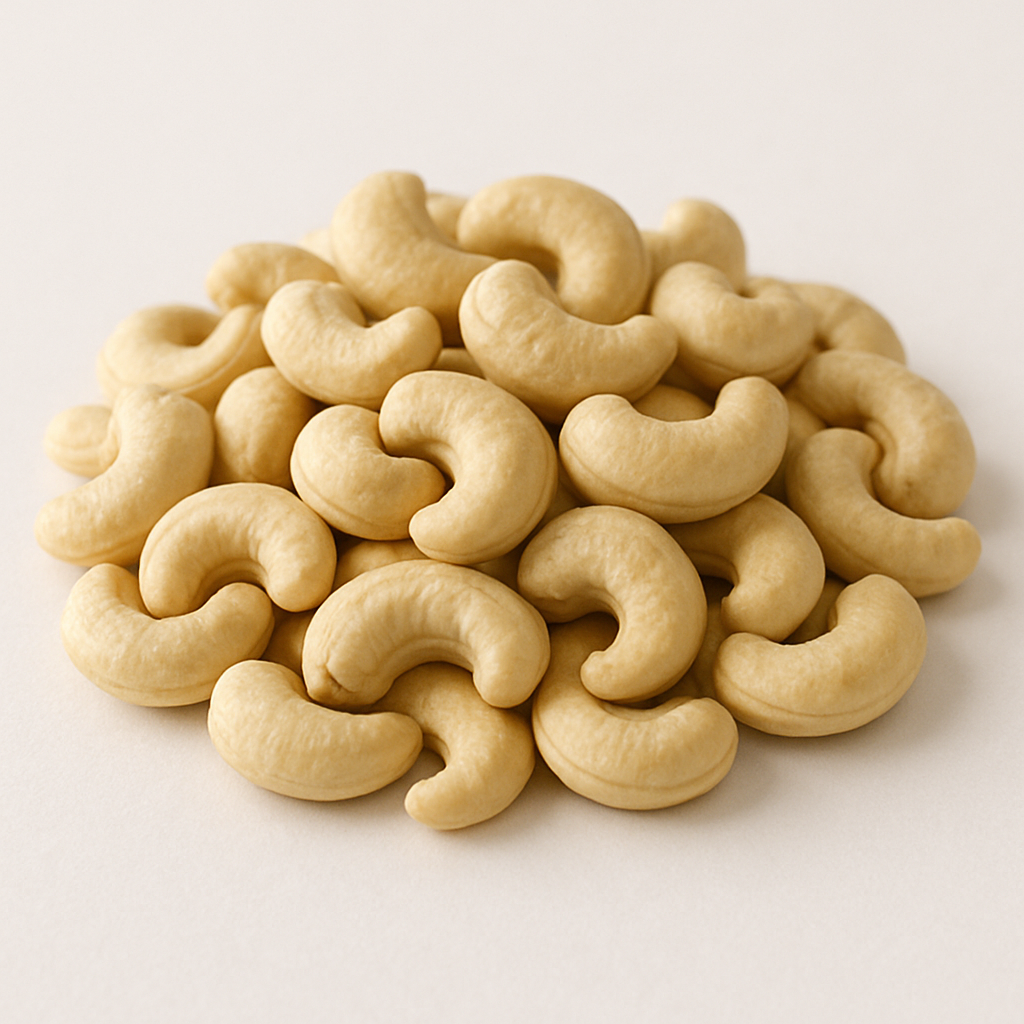Wadi
Cashews
Cashews
Couldn't load pickup availability
Primary Uses:
1. Culinary uses:
- Snacking
- Baking
- Cooking
- Garnishing
2. Flavoring uses:
- Nutty flavor
- Creamy flavor
- Sweet flavor
- Salty flavor
3. Aroma uses:
- Mild aroma
- Nutty aroma
- Roasted aroma
- Toasted aroma
Other Uses:
1. Medicinal uses: Cashews are believed to have several medicinal properties, including anti-inflammatory, antioxidant, and anti-cancer properties. They are also used to treat various ailments such as diabetes, heart disease, and high blood pressure.
2. Religious uses: Cashews are used in various religious ceremonies and rituals in many cultures. In Hinduism, cashews are offered to deities as a part of religious rituals.
3. Ornamental uses: Cashews are often used as decorative elements in various dishes and desserts. They are also used as toppings for cakes, ice creams, and other desserts.
4. Insect repellent: Cashew oil is used as a natural insect repellent. It is believed to repel mosquitoes, flies, and other insects.
5. Dyeing agent: Cashew shells are used as a natural dyeing agent. They produce a yellowish-brown color that is used to dye fabrics and textiles.
6. Folklore uses: Cashews are believed to have various folklore uses in many cultures. In some African cultures, cashews are believed to have magical powers and are used in various rituals and ceremonies.
7. Culinary garnish: Cashews are often used as a garnish in various dishes and salads. They add a crunchy texture and nutty flavor to the dish.
Caution:
1. High in fat: Cashews are high in fat content, which can lead to weight gain and other health issues if consumed in excess.
2. Allergic reactions: Some people may be allergic to cashews, which can cause severe allergic reactions such as swelling, hives, and difficulty breathing.
3. Expensive: Cashews are relatively expensive compared to other nuts, which can make them less accessible to some consumers.
4. High in calories: Cashews are also high in calories, which can contribute to weight gain if consumed in large quantities.
5. Oxalate content: Cashews contain oxalates, which can contribute to the formation of kidney stones in some people.
6. Processing methods: Some cashews may be processed using chemicals or other methods that can be harmful to human health.
7. Environmental impact: Cashew production can have negative environmental impacts, including deforestation and soil degradation.
Share


